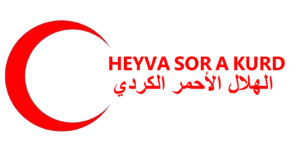Turkish Government cut water supplies on Al-Hasaka city
 Turkish Government cut water supplies
Turkish Government cut water supplies
A violation of IHL who can be fatal of thousands of people.
On Saturday, Turkish Government cut the flow from a reservoir that supplies water to areas in northeastern Syria’s Hasakah province that the Kurdish-led local authorities control.
The Alouk Water Station is located near the border town of Serekaniye, which Turkey and its militant proxies took control of in October 2019 during Turkey’s so-called “Peace Spring Operation”. Since then, Turkishbacked groups have regularly cut off the water flow. This is confirmed also by a public UNICEF statement, which one claimed the move was the latest in a series of disruptions in water pumping over the past weeks.
The Allouk pumping station, which usually serves more than 460,000 people in and around Hasakah, has not been functional since 30 October 2019. Since then, KRC with other actors has been taking emergency measures to find alternative sources of water for people in the region.
Protecting water resources and infrastructure to ensure a reliable supply of water and electricity to the population is a basic need for the civil population. Water facilities are covered under a number of terms and provisions of international humanitarian law, either by treaty or by customary law.
Starvation as a method of warfare is explicitly prohibited regardless of the nature of the conflict, and the concept of objects essential for the survival of the civilian population includes drinking-water installations and supplies and irrigation works. Immunity for indispensable objects is waived only when these are used solely for the armed forces or in direct support of military action. Even then, the adversaries must refrain from any action, which could reduce the population to starvation or deprive it of essential water.
The water pipeline is still regularly cut off.
More than 460.000 people are without water supply.
The international community have to take a serious step to reduce this catastrophe.
In civil wars, which today account for most of the armed conflicts in the world, the use of water by the belligerent parties constitutes a serious threat to the population concerned. To attack water is to attack an entire way of life and makes access to water well nigh or completely impossible, thereby heightening the risks to the civilian population despite the protection it is granted under international law.
Moreover, a United Nations representative in Syria on Monday said interruption to a key water station in the country’s northeast puts at least 460,000 people at risk as efforts ramp up to prevent the spread of the coronavirus disease.
The COVID-19 pandemic (or coronavirus) is unprecedented in recent history and is spreading rapidly. It is not only a public health crisis, but also a humanitarian crisis in the making. In war-torn countries, COVID-19 represents a dramatic threat to life. Health system has already been ravaged by violence, and the threat of further strain on health care from the coronavirus is an enormous risk for communities. Plans to prevent and respond to the virus must urgently move forward before it gains a foothold in countries in conflict. Denying hundreds of thousands of people access to water is denying them a basic source of protection against Covid19, given that handwashing is a fundamental means in shielding oneself of the virus.
Meanwhile, the SDF (Syrian Democratic Forces) replying to a calling by UN Secretary-General, declared a ceasefire in all the area.
The KRC urges all parties to the conflict to declare a ceasefire and to respect civilian life by taking every possible measure to protect and respect civilians and civilian infrastructure.
International Humanitarian Law aims at ensuring that the basic needs of civilians are met, even in times of conflict. In northeast Syria, the infrastructure (e.g. water stations and dams) for water supply systems happen to be located near the frontlines and it is critical that they are protected.
The Geneva Conventions and their Additional Protocols protect sick, wounded and shipwrecked persons not taking part in hostilities, prisoners of war and other detainees, civilians and civilian objects. Military operations must be conducted in accordance with IHL, in particular the principles of distinction, proportionality and precaution. Attacking, or rendering useless, objects indispensable to the survival of the civilian population, such as water and sanitation facilities, is prohibited.
KRC ask the Turkish Government to allow providing water to areas deprived of it immediately and urgently and to guarantee that no further water interruption is to happen under any pretext.
Owing to these circumstances and due to the critical and dramatic situation due to COVID-19 pandemic, we strongly recommend and ask the UN Security Council an immediate reopening of Yaroubiyeh border.
According to the UN, the border crossing in the past enabled support to an estimated 1.4 million people in northeast Syria.
KRC took it as our humanitarian mandatory to serve all people no matter of their background, nationality, race, religion, gender. However, the International Community have to be aware and to support these activities. We will always continue our work accepting the international humanitarian principles, protecting the ideas of international laws and principles.











